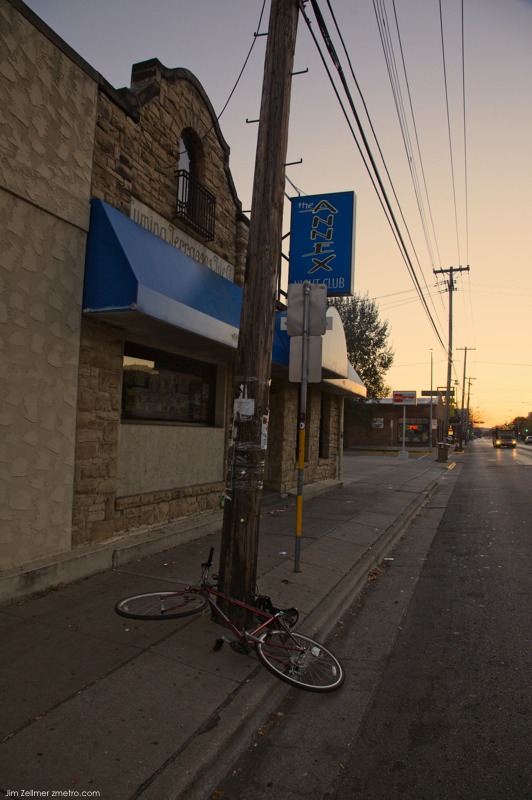IN 2001, RUMORS were circulating in Greek hospitals that surgery residents, eager to rack up scalpel time, were falsely diagnosing hapless Albanian immigrants with appendicitis. At the University of Ioannina medical school’s teaching hospital, a newly minted doctor named Athina Tatsioni was discussing the rumors with colleagues when a professor who had overheard asked her if she’d like to try to prove whether they were true—he seemed to be almost daring her. She accepted the challenge and, with the professor’s and other colleagues’ help, eventually produced a formal study showing that, for whatever reason, the appendices removed from patients with Albanian names in six Greek hospitals were more than three times as likely to be perfectly healthy as those removed from patients with Greek names. “It was hard to find a journal willing to publish it, but we did,” recalls Tatsioni. “I also discovered that I really liked research.” Good thing, because the study had actually been a sort of audition. The professor, it turned out, had been putting together a team of exceptionally brash and curious young clinicians and Ph.D.s to join him in tackling an unusual and controversial agenda.
Last spring, I sat in on one of the team’s weekly meetings on the medical school’s campus, which is plunked crazily across a series of sharp hills. The building in which we met, like most at the school, had the look of a barracks and was festooned with political graffiti. But the group convened in a spacious conference room that would have been at home at a Silicon Valley start-up. Sprawled around a large table were Tatsioni and eight other youngish Greek researchers and physicians who, in contrast to the pasty younger staff frequently seen in U.S. hospitals, looked like the casually glamorous cast of a television medical drama. The professor, a dapper and soft-spoken man named John Ioannidis, loosely presided.
Another Gorgeous Madison Weekend!



RIP Renewable Energy Pioneer Hermann Scheer
Renewable energy pioneer Dr Hermann Scheer has passed away on October 14 in Berlin. Scheer was President of the European Association for Renewable Energy (Eurosolar), Chairman of the World Council for Renewable Energy (WCRE), winner of the Alternative Nobel Prize and Member of the German Bundestag. He was 66 years old.
Scheer entered the German parliament as a Social Democrat member in 1980 and was instrumental in introducing Germany’s solar roof programmes and the Renewable Energy Law. The Renewable Energy Law included the now widely replicated feed-in tariff. As a result a substantial percentage of the world’s wind farms and its solar panels are located in the country.
Future Shock at 40: What the Tofflers Got Right (and Wrong)
They predicted the “electronic frontier” of the Internet, Prozac, YouTube, cloning, home-schooling, the self-induced paralysis of too many choices, instant celebrities, and the end of blue-collar manufacturing. Not bad for 1970.
In the opening minutes of Future Shock, a 1972 documentary based on the book of the same name, a bearded, cigar-puffing, world-weary Orson Welles staggers down an airport’s moving walkway, treating the camera like a confidante. “In the course of my work, which has taken me to just about every corner of the globe, I see many aspects of a phenomenon which I’m just beginning to understand,” he says. “Our modern technologies have changed the degree of sophistication beyond our wildest dreams. But this technology has exacted a pretty heavy price. We live in an age of anxiety and time of stress. And with all our sophistication, we are in fact the victims of our own technological strengths –- we are the victims of shock… a future shock.”
Why America is going to win the global currency battle
The US is going to win this war, one way or the other: it will either inflate the rest of the world or force their nominal exchange rates up against the dollar. Unfortunately, the impact will also be higgledy piggledy, with the less protected economies (such as Brazil or South Africa) forced to adjust and others, protected by exchange controls (such as China), able to manage the adjustment better.
It would be far better for everybody to seek a co-operative outcome. Maybe the leaders of the group of 20 will even be able to use their “mutual assessment process” to achieve just that. Their November summit in Seoul is the opportunity. Of the need there can be no doubt. Of the will, the doubts are many. In the worst of the crisis, leaders hung together. Now, the Fed is about to hang them all separately.
Google to Map Inflation Data
Google is using its vast database of web shopping data to construct the ‘Google Price Index’ – a daily measure of inflation that could one day provide an alternative to official statistics.
The work by Google’s chief economist, Hal Varian, highlights how economic data can be gathered far more rapidly using online sources. The official Consumer Price Index data are collected by hand from shops, and only published monthly with a time lag of several weeks.
At the National Association of Business Economists conference in Denver, Colorado, Mr Varian said that the GPI was a work in progress and Google had not yet decided whether to publish it.
This is a great idea.
Madison’s Arboretum on a Gorgeous Sunday


Lunch with Phoebe Philo
Phoebe Philo, the 37-year-old creative director of Céline, is surprisingly frail for someone who a year ago accomplished the Herculean feat of turning the river of trend and washing fashion’s Augean stables clean of decorative bling. A 2010 nominee as British Designer of the Year, she was also behind one of the most heralded collections at last week’s women’s wear shows in Paris.
Medium height, with wispy brown hair and prominent cheekbones, her thin frame swamped by a black leather jacket and a long, man’s shirt over slouchy black trousers, she can seem almost fragile. On the other hand, she has chosen St John, a restaurant in Clerkenwell, London, known for its “nose to tail” menu of offal and other meaty innards, so clearly she has a carnivorous, protein-packing side.
“Well, it’s run by a friend,” she says when she arrives in the stripped-down white space and sits at the paper-covered table. “And it has a straightforwardness that I quite like. It’s very to-the-point.”
To wit: there are “peas in the pod” on the menu. Literally. Undressed, unshelled, peas in the pod, like the kind you get in the market. Or, as Philo says, like the kind that might have “come right from the garden”. She orders some of those with fresh lemonade – the kind they make in America, with just lemon juice, water, and sugar – plus a green salad, some cured mackerel and a roast beef sandwich, because she “rather fancies some white bread”. I opt for lemonade, some cauliflower and lentils, a green salad and a cheese plate. Philo looks at me appraisingly.
Fall Color on a Gorgeous Sunday: God’s Glory


Some city agencies have fared better than others under Cieslewicz
Staffing within the Madison Police and Fire departments has boomed under mayor Dave Cieslewicz while some agencies like streets and parks have declined, a State Journal analysis of city data shows.
Cieslewicz said more police and firefighters have helped cut crime and response times in a growing city and that technology and management have let streets and parks employees plow snow, collect garbage and mow grass with fewer workers.The rate of increase in earnings by Police and Fire department staff also outstrips most other agencies, the analysis shows
Staffing is about “responding to the needs of the city,” especially in a recession economy, Cieslewicz said. “It’s good management.”
But others say more personnel is needed for other basic services.
A useful investigative article. Perhaps the State Journal will have a look at the schools as well.